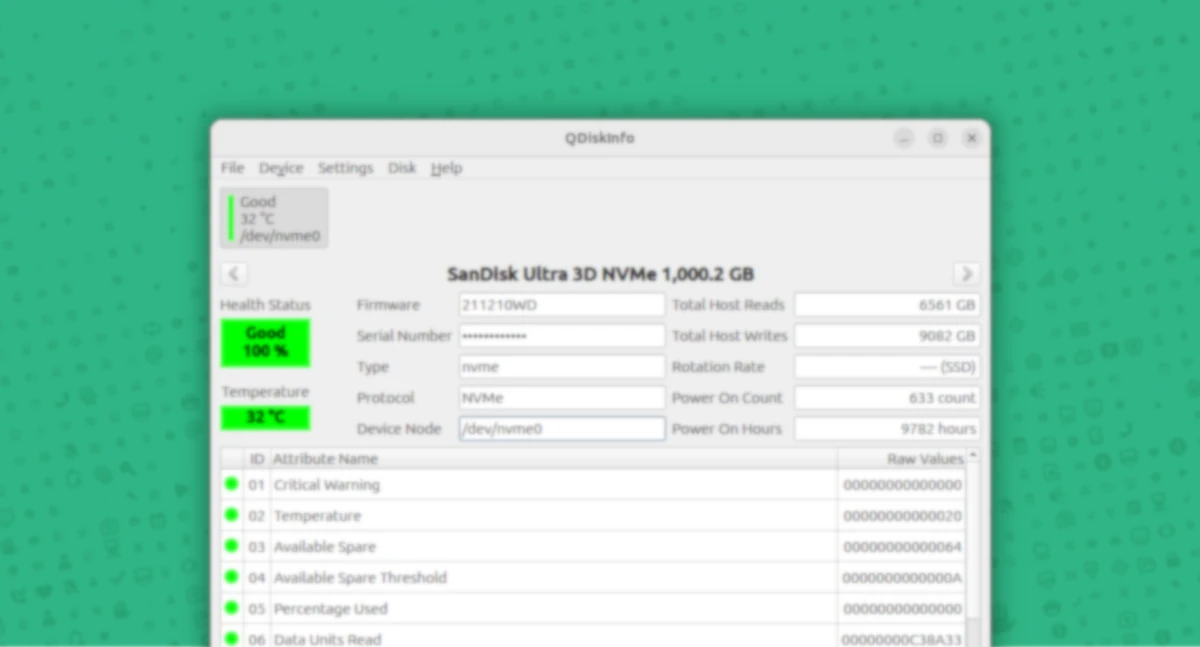Looking for a graphical app to monitor the health and performance of your hard disk drives (HHD) and solid state drives (SSD)? Try the new QDiskInfo for Linux Desktop.
It’s a free and open-source application written in C++ programming language and Qt6 toolkit for its user interface. And, it uses smartctl as backend to control and monitor storage systems using the SMART built into most modern ATA/SATA, SCSI/SAS and NVMe disks.
The app provides a user experience that’s very similar to the popular Windows only CrystalDiskInfo HDD/SSD utility software.
As you can see in the screenshot above, QDiskInfo automatically detects all available disks on your system on startup, and list them in top with thumbnails.
With the thumbnail list, you may take a glance at all disks’ states (e.g., health and temperature), and click one of them in the list to view the more information. They include the health status in percentage, firmware, serial number, how much data read/written, and how long it’s being in use.
As well, it displays S.M.A.R.T values of selected disk, including critical warning, available spare, unsafe shutdowns, media errors, etc. And, all the values are in hexadecimal.
How to Install QDiskInfo
QDiskInfo has been made into Ubuntu 24.10, Debian 12, testing and unstable repositories. Users of them can simply search for & install it using system package manager.
For Ubuntu 22.04, Ubuntu 24.04, Linux Mint 21/22, I’ve made it into this unofficial PPA for amd64 and arm64/armhf platforms. Simply open terminal and run 3 commands below one by one to install:
sudo add-apt-repository ppa:ubuntuhandbook1/qdiskinfo
sudo apt update
sudo apt install qdiskinfo
It’s also available in COPR repository for recent Fedora releases, AUR for Arch Linux.
While, others can download the portable binary from Github release page:
Then, run after adding executable permission to launch the program.
